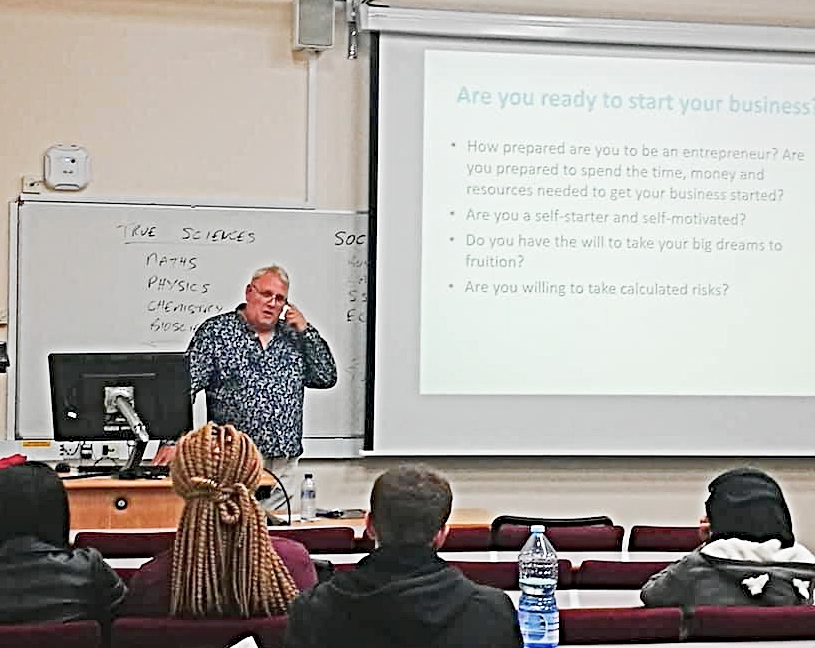We know that micro businesses have between 0 – 9 employees making up a large proportion of all UK businesses. Combined with today’s fast moving pace and the ever-changing world there has never been a better time to start a new business
– So, Bill, what are the top tips to help you start your own business and avoid many of the pitfalls?
– I see so many new businesses just drifting in to business, they seem happy to spend a lot of time and money trying to get the business off the ground and many ultimately fail. In fact, around 80% of all new businesses fail in the first year, and 17% of the rest fail in the first 5 years, so the survival rates are very low.
There is a huge amount of help & support for anyone who is considering starting their first business, and I would strongly recommend that they seek guidance from their support team at the Innovation Hub.
Some of the key areas that come up again and again are as follows: Time, new business owners often do not realise there is so much to do as a solopreneur other than the bits that you like doing; Sales, Marketing, Planning, Selling plus much more.
The next challenge for many business owners is Team. Getting the right people to help you grow and develop their businesses, this could be bank, financial adviser or your business adviser.
-Great advice, Bill, what are some of the major issues faced by new business owners?
-I have listed below a number of challenges that many new businesses will face, and I would strongly recommend that they book a FREE business advice session via the Hub here at University of Kent’s Innovation hub.
Stage 1. Thinking of starting a business
- Why do you want to start a business and become an entrepreneur?
- What are your goals, interests, wants and capabilities? What do you want to achieve?
- What are your expectations for the business? How realistic are these expectations?
Stage 2. Are you ready to start your business?
- How prepared are you to be an entrepreneur? Are you prepared to spend the time, money and resources needed to get your business started?
- Are you a self-starter and self-motivated?
- Do you have the will to take your big dreams to fruition?
Stage 3. What type of business are you starting?
- How do you want to start the business? Are you going to start a business from scratch, buy into a franchise or buy an existing business?
- Have you made a list of potential areas in your personal background, special training, educational and job experience, and special interests that could be developed into a business?
- Have you taken the time to explore various options for your possible business? Have you looked at what’s out there right now, and what may not be presently offered?
Step 4 Are you financially ready to start your business?
- Have you calculated how much money you need to jump-start the business and keep it running?
- Is the cost of the business within your reach?
- Where will you secure funding to support your production, marketing and operations?
Step 5 Do you have a plan and how will you make it successful?
- Have you prepared your business plan? Do you know the steps and strategies needed to get your business up and running?
- What is your product or service?
- How useful is your product or service? Have you listed how others will benefit from using your products or services?
Step 6. What does it take to build a successful business?
- What is the name of your business? Is it distinctive, unique and memorable?
- What is the legal structure of your business? Do you have all the paperwork you need?
- What licenses and permits will your business need? Do you have the requisite identification numbers for your business?
- What tools and technologies can you use to improve your work flow and business operations?
- How can you run your business lean (especially at the start when money may be tight)?
- How can you convey professionalism, even if you are a one-person business?
Step 7. How will you market your products & services?
- Who is your target market? Is this market big enough to sustain your business (as well as your competitors?)?
- Why will they buy your product or use your service?
- Will your product or service maintain market appeal?
If you have a idea whether for a physical or digital business, and would like to explore it further, drop us an e-mail.
1-2-1 Business advice sessions at the Hub for Innovation and Enterprise are free, confidential and available for current students, alumni and staff of the University.
You are welcome to book a session here.

